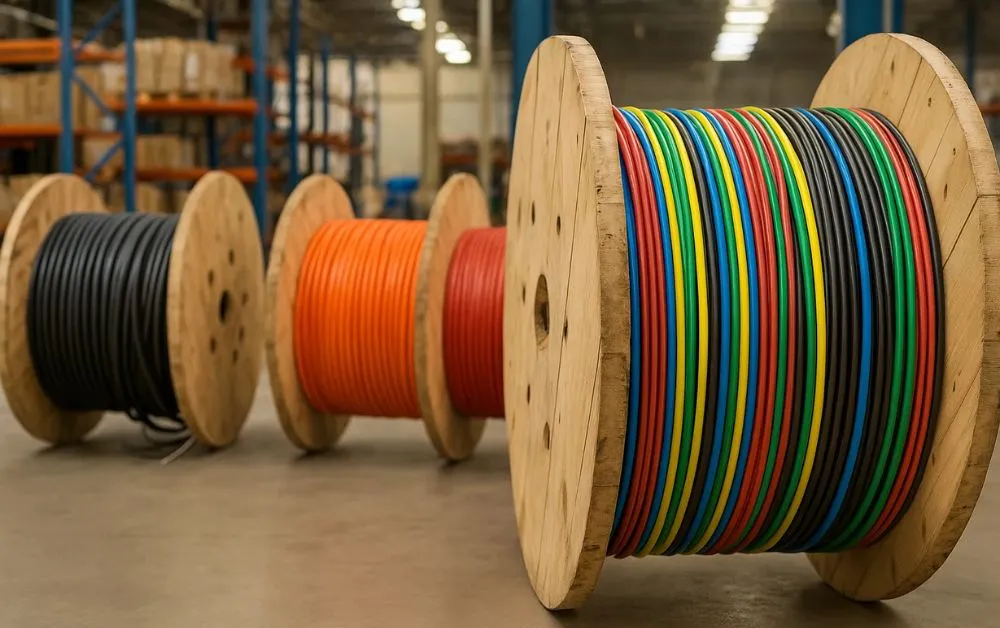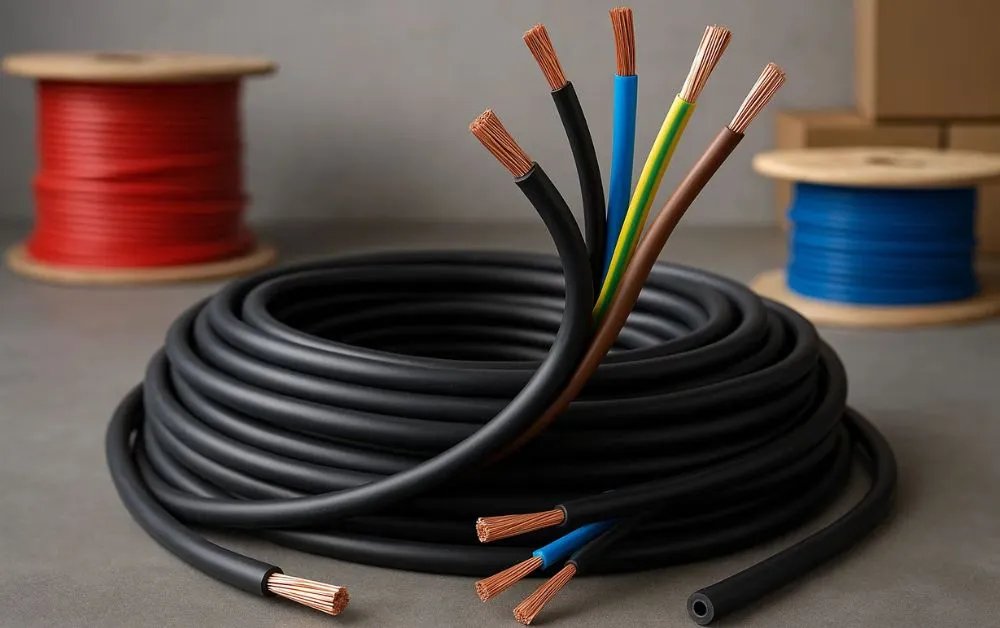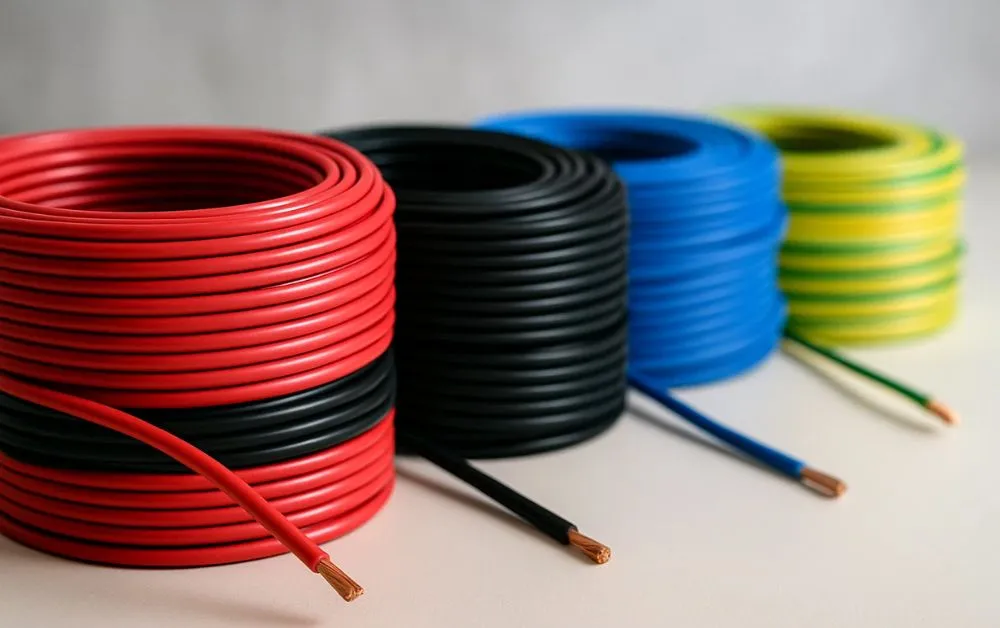
Electrical cables are the lifelines of modern infrastructure, powering homes, businesses, industries, and large-scale projects. They are designed to carry electrical energy safely and efficiently, making them an essential part of every construction and industrial application. Understanding the different types of cables and their specific uses can help in selecting the right one for your needs. Working with reliable electrical cable suppliers in uae ensures access to high-quality products that meet safety and performance standards.
Why Electrical Cables Matter
Before diving into types, it’s important to understand why cables are so critical:
- Safety: Proper cables reduce the risk of short circuits and fire hazards.
- Efficiency: High-quality cables ensure smooth power transmission with minimal energy loss.
- Durability: Good cables last longer and withstand environmental conditions.
- Compliance: Certified cables meet international standards, ensuring both safety and performance.
Because of these reasons, industries and contractors emphasize sourcing products only from reputed electrical cable suppliers in uae.
Common Types of Electrical Cables and Their Uses
1. Power Cables
Power cables are used to transmit electricity at high voltages, mainly in power plants, substations, and large-scale industrial facilities. They are designed to handle heavy loads and are insulated to prevent leakage or accidents.
Uses: Power transmission, industrial machinery, and electrical grids.
2. Control Cables
These cables are specifically designed for controlling and regulating systems. They transmit signals to operate equipment like conveyor belts, automation systems, and production machinery.
Uses: Industrial control systems, automation equipment, and signaling.
3. Coaxial Cables
Coaxial cables are widely used for transmitting data, television signals, and internet connections. They consist of a conductor, insulating layer, and shielding to reduce interference.
Uses: Cable TV connections, internet lines, and communication systems.
4. Data Cables
Data cables are used to transfer data and information between systems. These include USB cables, Ethernet cables, and fiber optic cables.
Uses: Computer networks, data centers, and telecommunication.
5. Fire-Resistant Cables
Designed to withstand high temperatures, fire-resistant cables are crucial in areas where safety is a priority. They continue to function even during a fire, ensuring emergency systems remain operational.
Uses: Emergency lighting, fire alarms, and evacuation systems.
6. Instrumentation Cables
These are used for precise transmission of low-energy signals for monitoring and controlling electrical systems. Their design prevents electromagnetic interference, ensuring accurate results.
Uses: Measurement systems, control panels, and industrial automation.
7. Flexible Cables
Flexible cables are highly bendable and suitable for moving machinery or equipment that requires frequent repositioning.
Uses: Portable tools, appliances, and robotics.
8. Armoured Cables
Armoured cables come with protective layers, making them suitable for underground or outdoor installations where physical damage risk is high.
Uses: Underground power supply, outdoor projects, and industrial applications.
9. Solar Cables
With renewable energy projects booming, solar cables are specifically designed for connecting solar panels. They resist UV rays, moisture, and high temperatures.
Uses: Solar power plants, rooftop solar panels, and renewable energy systems.
Explore more-Understanding Voltage Ratings in Electrical Cables
Choosing the Right Cable for Your Needs
When selecting electrical cables, several factors should be considered:
- Voltage Requirement: Low, medium, or high voltage depending on the application.
- Environment: Indoor, outdoor, underground, or in harsh conditions.
- Flexibility: Whether the cable will remain fixed or needs to handle movement.
- Safety Standards: Always ensure cables are certified and meet international standards.
- Supplier Reliability: Trusted electrical cable suppliers in uae provide not only the right product but also expert guidance and after-sales support.
Applications of Electrical Cables in the UAE
Given the rapid infrastructure and industrial development in the UAE, electrical cables are in high demand across sectors:
- Residential: Wiring for lighting, appliances, and home automation.
- Commercial: Shopping malls, office towers, and hotels require structured cabling systems.
- Industrial: Factories, refineries, and warehouses use heavy-duty cables for machinery.
- Infrastructure: Airports, metros, and highways depend on large-scale cable installations.
- Renewable Energy: Solar farms and wind projects increasingly rely on specialized cables.
Conclusion
Electrical cables are not just simple wires; they are the backbone of every modern project, ensuring safety, efficiency, and uninterrupted power supply. From power transmission to data connectivity and renewable energy systems, each cable type has a unique role to play. Choosing the right one requires understanding its purpose, application, and quality standards. This is why working with reliable electrical cable suppliers in uae is crucial. Among the most trusted names in the industry, Al Arz Electrical Ware Trading stands out for offering a comprehensive range of high-quality electrical cables that meet international standards, ensuring safety, performance, and long-term value for every project.



